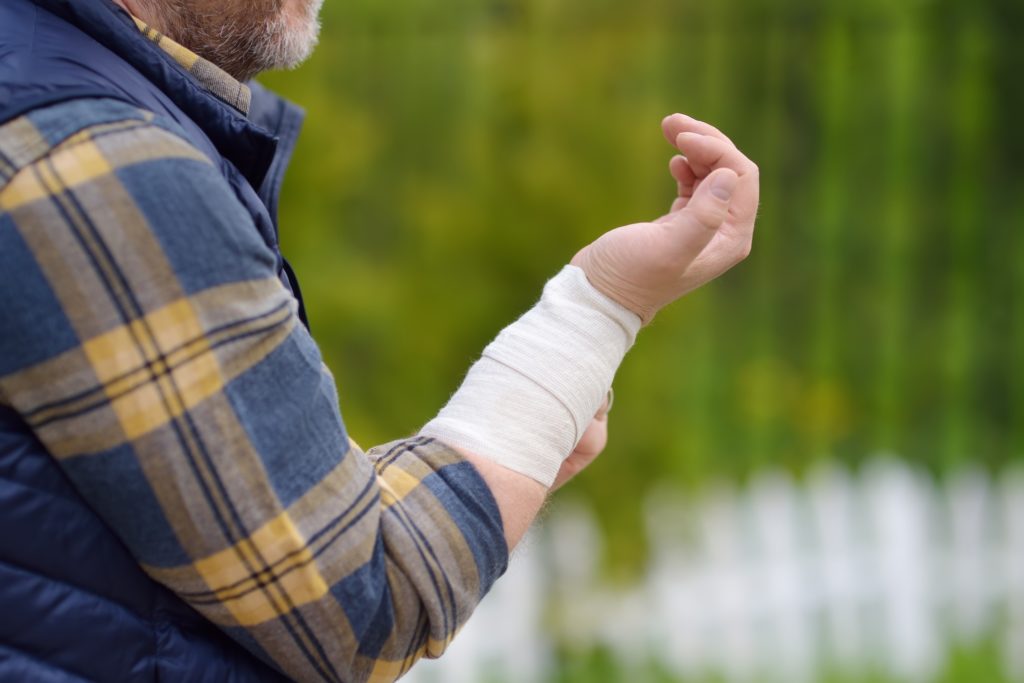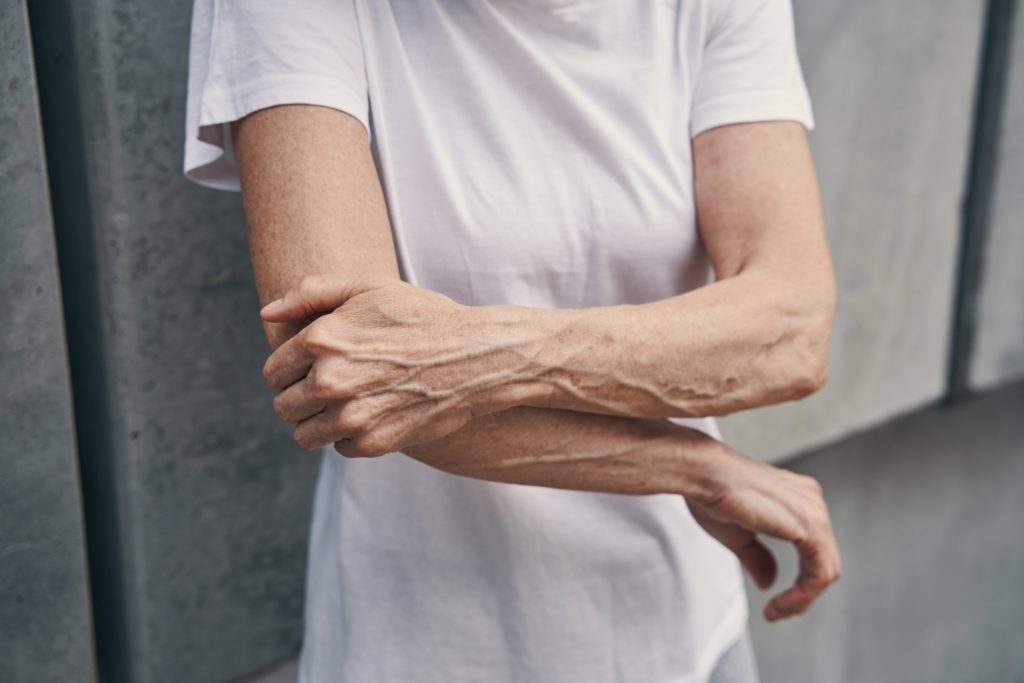A study completed throughout the curse of the pandemic showed an increase in mental health claims, especially amongst the youth. These issues ranged from thoughts of self-harm to suicide.
It’s essential to educate yourself about self-harm triggers and learn some tips that will help you offer your loved ones the support they need when they’re going through a tough time. It’s also helpful to understand your triggers if you’ve had thoughts of self-harm.
Read on now and find out some helpful information in this guide.
What Is Self-Harm?
Before you can better understand what triggers you to self-harm, you’ve got to understand what it is. Self-harm is when someone chooses to hurt themselves because of thoughts or emotions that become too overwhelming to handle.
When people self-harm themselves, it’s not apparent to their close family and friends most of the time. They choose to self-harm in places where others can’t see. Medically self-harm is classified as NSSI or non-suicidal self-injury because most people aren’t trying to kill themselves when they self-harm.
Common self-harm behaviors include:
- Cutting yourself
- Burning yourself
- Abusing drugs and alcohol
- Starvation
- Entering risky situations purposefully
Signs and Causes of Self-Harm

There are several signs, both subtle and obvious, that you can pick up on if you suspect something is going on with your loved one. Some common behavioral cutting warning signs include:
- Not dressing properly
- Not wanting to participate in activities where their body is exposed
- Having random bodily wounds
- Becoming reclusive
Other signs might be your loved one expressing that they’ve had feelings of anxiety and depression as a cry for help. Instead of brushing these feelings of, ensure you acknowledge them and provide them the support they need to seek help.
If you find your loved one no longer enjoys the same hobbies and has withdrawn from their regular friend group, this is a common sign that there is something wrong. Another sign is an increase in their mood swings.
One moment they’re calm, the next they’re angry or upset.
Lastly, if you see physical signs of self-harm, you likely need to take action immediately. There are several other signs that someone you love might be self-harming.
Now that you understand the different signs of self-harm, here are some reasons people are triggered to harm themselves.
Family
The first trigger a person might have is their family. This can happen when someone lives in an atmosphere where they feel unsupported or constantly ridiculed by the people that are meant to love them.
Take a moment and think back to each time you’ve thought about harming yourself and identify the common denominator in each situation. If someone from your family is present or has triggered each episode, they are likely the very thing that triggers your feelings of overwhelmingness.
Even if your family is supportive, the cause of your self-harm could be stress from home instability. Not knowing whether the bills will be paid or if the lights will be shut off can cause extreme pressure on a person.
This stress could lead to depression, which in turn could trigger your urge to self-harm.
Peer Pressure
Another common trigger, especially among teenagers and even adults, is societal pressure or peer pressure. The need to meet the expectations of people around you when you’re not at home.
For teens, one of the most essential things is having friends that they fit in with. Not fitting in with teenagers their age can increase their stress, and feelings of isolation lead to depression.
Adults face stress when they are trying to keep up at work and meet the expectations of their employers. This kind of stress and being overlooked for potential promotions can be depressing.
Feeling Worthless or Lonely
One of the main reasons people’s mental health took a nosedive during the pandemic is that people spent more time inside away from family and friends. This means they spent more time with their thoughts than other places, which distracted them from these thoughts, leading to depression.
Feeling alone is like being in a dark box without finding a way out. It becomes claustrophobic and can feel suffocating.
Another common trigger for some people is feelings of worthlessness or feeling like you bring no value to people’s lives. When you feel as if you mean nothing, you treat yourself accordingly, which leads to self-harm.
Self-harm is an attempt to relieve the feelings that feel like they could ooze from your skin if not released.
Internal Hatred
Imagine an athlete pushing their bodies to the limit to make it to the top of their sport, but failing time and time again because of the unrealistic expectations they’ve placed on themselves. They begin to hate themselves and their bodies because they cannot reach the level of performance they desire.
They blame themselves for failing, and this causes stress to climb until they desire to find a way to release it. This release can come in the form of pushing themselves even harder or self-harm.
Sexuality
Even with the advancement of the modern world, some people still find it hard to talk about their sexuality with people they are close to. Instead of wanting their families to treat them differently, they turn the anger and sadness they feel on themselves.
These emotions are compounded by their shame for having these feelings and not knowing how to deal with them. It’s essential to identify the things in your life that act as triggers or stressors and find ways to cope with them.
Past Trauma
When people face trauma in their lives and don’t deal with it, the only thing they see fit to do is to self-medicate. This can be through cutting or indulging in drugs and alcohol.
When you do this, you feel better about not having to face the emotions associated with that trauma. The problem is self-harm doesn’t make the trauma go away.
The only thing you can do is to face the trauma head-on in a professional setting and learn not to allow it to affect you and the way you move forward with making decisions in your life.
How To Fight The Urge To Self-Harm
One of the reasons people continue to self-harm after the first time is partially to relieve feelings of being overwhelmed and stressed and partly because it ‘feels good.’ You might be wondering how something volatile can feel good to people.
When your body is in pain, it releases a chemical known as endorphins throughout the body. These chemicals act like opiates and make you feel good no matter the chemical release cause.
Therefore, when someone cuts themselves, this pain releases endorphins, and they begin to feel naturally high due to self-harming themselves. If you or someone you love is harming themselves, there are ways to cope with these feelings and deter the need to self-harm.
When you first start to use coping skills, you might think that they aren’t working or don’t work at all. This is because your coping skills aren’t going to feel the same as if you were to give into self-injury.
The primary purpose of coping skills is to help you deal with the emotions when they feel like too much to handle.
Listen To Music
It’s been repeated time and time that music has a way of uniting people and making them feel things they’ve never felt before. Music is also helpful when a person feels overwhelmed and doesn’t know how to express their feelings.
There always seems to be the perfect song with all the right words to explain what you’re going through. One primary reason that music should be at the top of your coping list is that it can serve as a distraction from what you’re feeling.
By the time you’ve immersed yourself into the lyrics of the song, you’re going to begin to let the stress and worries you’re feeling melt away. If you enjoy making music, it works the same way.
There’s something therapeutic about playing music or writing a song that can help you manage your emotions before they get too big for you to handle. If you listen to some music and still find your feelings overwhelming, keep listening and let the music take you away.
Go For A Walk
Exercise is excellent for releasing stress and other negative energy because you’re exhausting your body while stretching your muscles simultaneously. After you’ve been triggered, stop what you’re doing and go for a walk.
Don’t give yourself a time limit for how long you walk. Just walk until you feel as if you can breathe again. When you’re feeling depressed, or your anxiety rises, it changes the serotonin levels within the brain.
Going for a walk can give you some fresh air, which has been proven to help improve your overall well-being. Not only can a walk help with your mental health it has several benefits for your body, including:
- Reduces your heart rate
- Increases the oxygen flowing through the body
Talk To Someone
Sometimes all we need is a friendly shoulder to lean on and an ear that allows you to vent. When you begin to feel triggered by something in your life, reach out to someone you trust and let them know you’re having a hard time coping with your feelings.
Even when you feel alone, the truth is there’s someone out there feeling the same emotions you are and wishing they had someone who could relate to them.
Even if you don’t want to mention that you’ve had thoughts of self-harm, taking the time to connect with someone can help reduce these feelings.
Seek Professional Help
If you don’t have anyone in your life you can turn to for help, you can always find professional programs that will help with your mental health. In these programs, you can seek a diagnosis for the struggles you’re having and get around-the-clock treatment to learn life skills to deal with your mental health problems.
The people in recovery programs will be equipped to provide you with the support you need and help you learn ways to cope after you’ve completed treatment.
Not to mention in these programs, you can create relationships with others that are going through the same thing you’re going through. It’s essential to have a network of people you can relate to.
Practice Breathing Exercises
We briefly touched on how exercising can help you reduce your stress, but breathing exercises can also help with this. When you begin to experience dissociative feelings or your heart starts to race, practice your breathing exercises.
Slowly breathe in and then slowly let that breathe out while focusing on other things, such as the bird outside your window chirping or the fresh air blowing past your face. Before you know it, your stress level will be lowered, and you’ll feel more in control of your emotions.
There are several types of breathing exercises you can practice to combat your triggers to self-harm.
Understanding Self-Harm Triggers and How to Cope With Them

Once you’ve identified your self-harm triggers, you can begin to learn ways to cope with them. It can be challenging to learn about coping skills and begin to put them in motion, but professional programs can help you with this.
Contact First Light Recovery and let us help you control your emotions instead of allowing them to control you.
Sources
- Covid Crisis Dramatically Worsened Global Mental Health, Study Finds. The Guardian. https://www.theguardian.com/world/2021/oct/08/covid-crisis-dramatically-worsened-global-mental-health-study-finds
- Stigma Related To COVID-19 Threatens To Divide Humanity Further. British Medical Journal. https://blogs.bmj.com/bmjgh/2021/08/29/stigma-related-to-covid-19/
- Early Psychological Impact of the COVID-19 Pandemic in Brazil: A National Survey. National Library of Medicine. https://www.ncbi.nlm.nih.gov/labs/pmc/articles/PMC7565796/
- Almost 20% of COVID-19 Patients Receive Psychiatric Diagnosis Within 90 Days. University of Oxford Department of Psychiatry. https://www.psych.ox.ac.uk/news/20-of-covid-19-patients-receive-psychiatric-diagnosis-within-90-days
- How to Cope With Grief Amid COVID-19. New York-Presbyterian. https://healthmatters.nyp.org/how-to-cope-with-grief-amid-covid-19/

